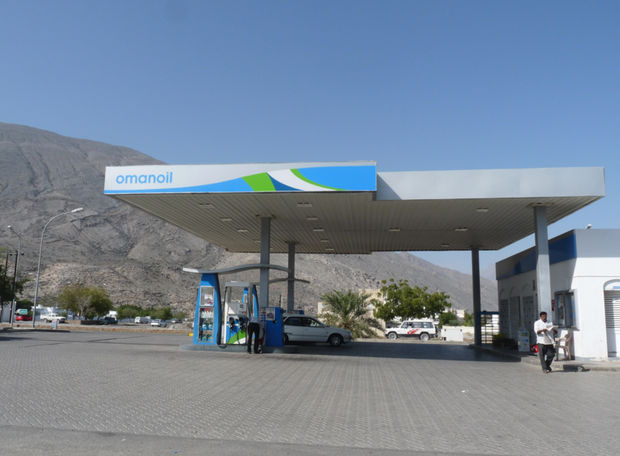Oman to slash fuel subsidies

AP
Oman’s government will hike fuel prices and charges for public services in the face of falling oil prices, the official ONA agency reported on Wednesday.
Non-OPEC Oman is the latest Gulf state to announce austerity plans amid falling oil revenues that have led to big budget deficits.
The country’s budget for 2016 also introduces measures to boost the country’s non-oil sector and raise corporate taxes.
“The council of ministers has approved a number of measures to face the consequences from the drop in oil prices and to ensure fiscal sustainability,” ONA cited a cabinet statement as saying.
“These measures include reducing government spending and boosting non-oil revenues through raising taxes on corporate profits, increasing charges on some public services and amending fuel prices to be in line with international levels as from mid-January,” the statement said.
Tawfiq al-Lawati, a member of the country’s Shura council, which advises Oman’s ruler Sultan Qaboos, told Times of Oman that the measures “could help the government generate additional revenue,” adding that Oman had been considering these measures for several years.
He warned however that any step related to subsidies should be taken gradually. “Otherwise, ordinary people will suffer and may seek, for instance, salary hikes,” he added.
The cabinet also approved a 2016-2020 development plan and the 2016 budget but provided no details.
Omani oil revenues have dropped by more than 60 percent as oil prices have plunged from about $100 a barrel to below $40 since mid-2014.
The country’s Ministry of Oil and Gas says that it forecast oil to be trading around $75 per barrel this year and that it was caught unaware by the long-term downward spike which on Wednesday brought the price of Omani crude in the Dubai Mercantile Exchange to just $32.28 a barrel.
In the first quarter of the year, Oman reduced subsidies on various food items such as rice, flour and sugar as well as fuel and other products, a government report released in June said.
However, the issue of fuel subsidies has long been a thorny one in Muscat with Oman’s Finance Minister Darwish Bin Esmail al-Balushi in November stressing that his government had no plans to cut fuel and other subsidies in 2016 and that it would continue to be guaranteed by the state, Gulf News reported.
At the time, Balushi said his government had to be “more cautious” but that there was “no need to be pessimistic as Oman has swift response for all changes”.
It has projected a budget deficit of $6.5bn for 2015, but the International Monetary Fund has warned the shortfall may be much bigger.
Oman, a member of the energy-rich Gulf Cooperation Council (GCC), is a relatively small producer of crude, pumping about one million barrels per day.
Saudi Arabia on Monday announced massive hikes to the prices of fuel products, electricity, water and other utilities to face a growing budget deficit as oil revenues have dropped.
The United Arab Emirates earlier liberalised fuel prices and Kuwait and Bahrain have lifted subsidies on diesel and kerosene. Kuwait also plans to end subsidies on petrol soon.
OPEC, which holds 80 percent of the world’s known oil reserves, voted in 2014 to keep production steady despite downward pressure in an apparent attempt to try and root out competition from Iran and shale producers in the US.
While many OPEC members have felt the financial blowback, Saudi Arabia (believed to be the key instigater of the production policy) has continued to apply pressure on other members, with the cartel in June 2015 voting once again to keep production levels and therefore prices low.
How to submit an Op-Ed: Libyan Express accepts opinion articles on a wide range of topics. Submissions may be sent to oped@libyanexpress.com. Please include ‘Op-Ed’ in the subject line.
- France to recognise Palestinian state in landmark UN declaration - July 25, 2025
- Libya and US explore $70 billion investment prospects - July 24, 2025
- UN envoy meets AU officials to align efforts on Libya - July 24, 2025


